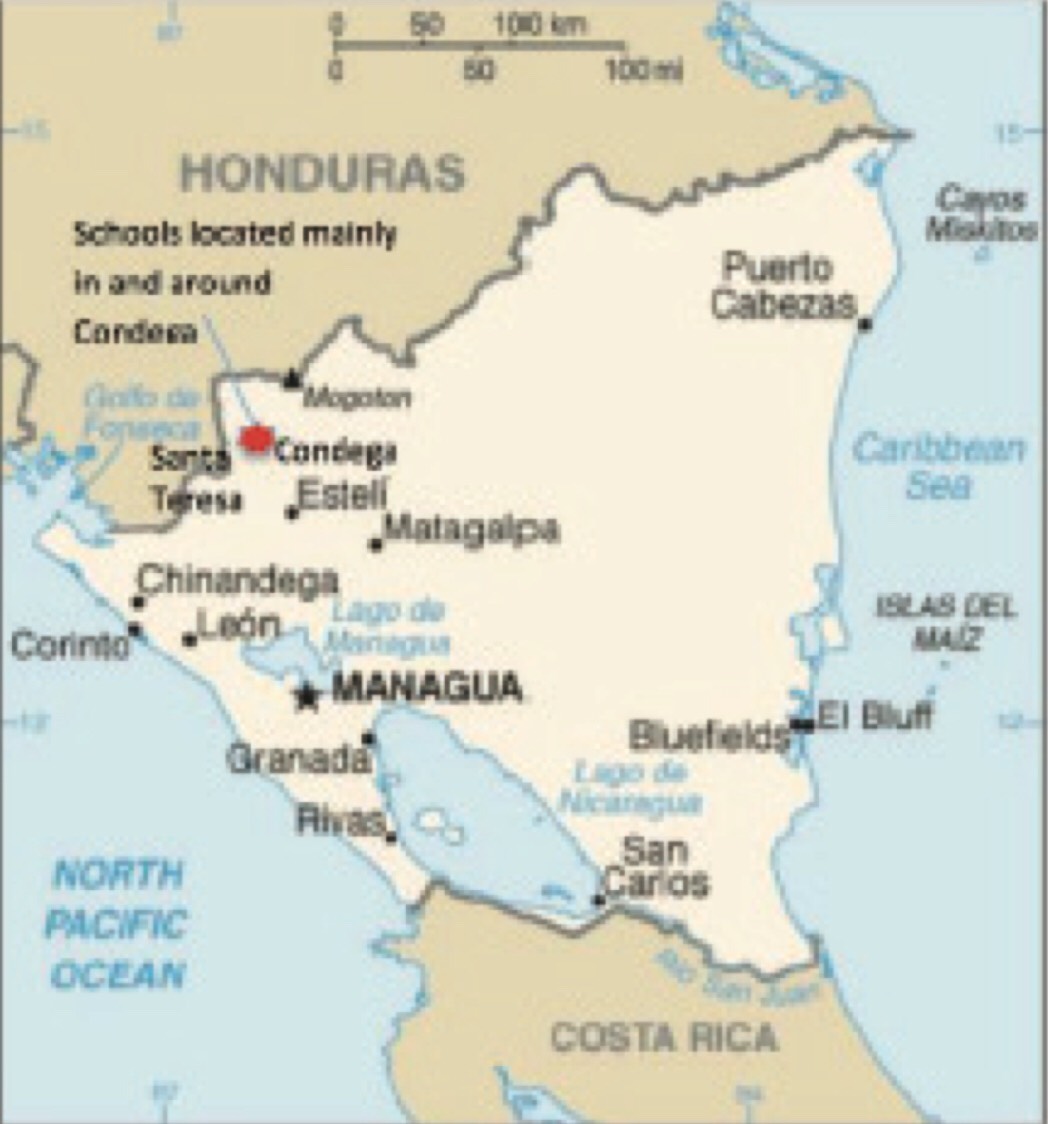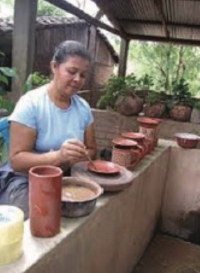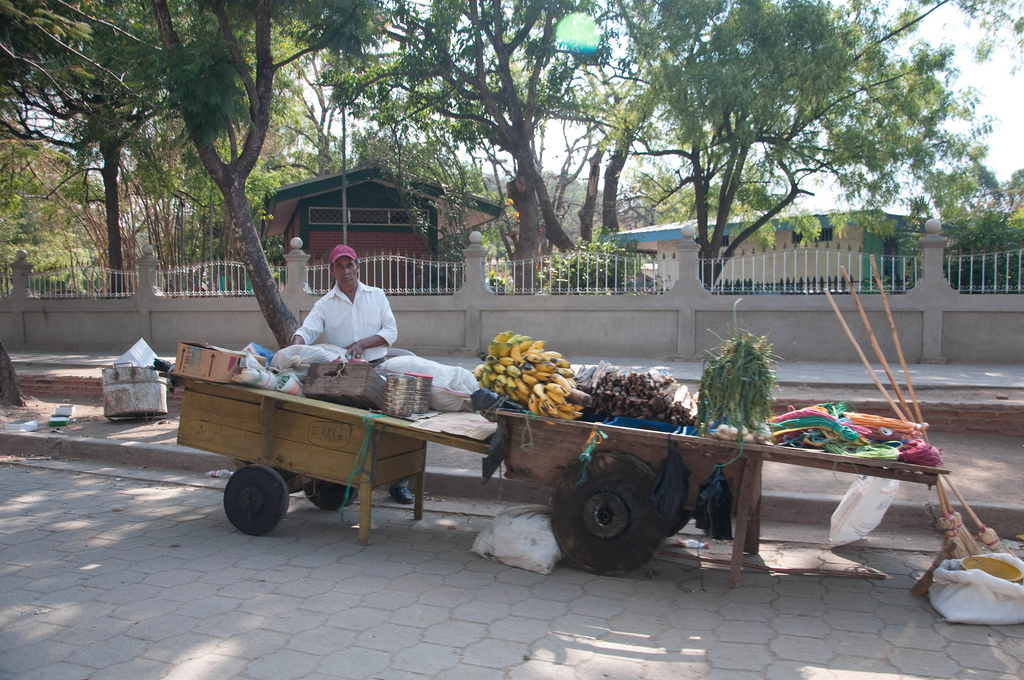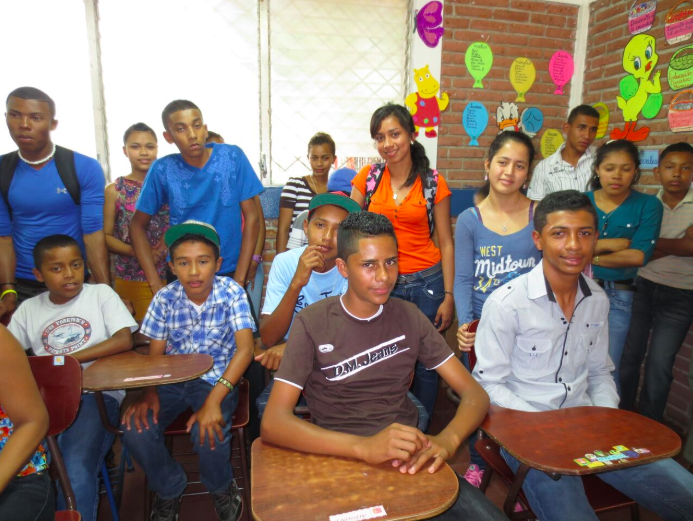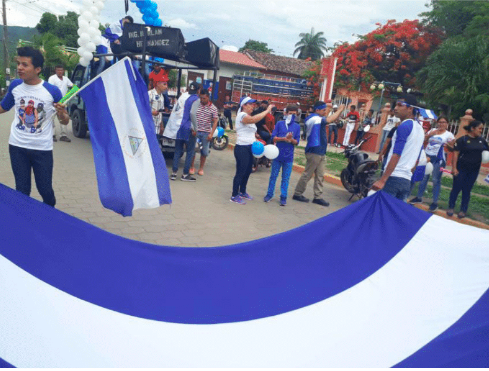Abel Roque at work as a nurse in Condega
My name is Abel Enrique Roque. I have been fortunate enough to have had a scholarship through Asla for the past four years of college, graduating in 2018 I am 28 years old, the youngest of seven children, and am from a small community in the hills, 17km (10.5 miles) outside of Condega called Peñasco, about an hour from Condega by bus. I went to primary school in Peñasco and high school in Condega. Many people thought I would not go on to high school or university because I was born with one leg shorter than the other which led to some bullying by other kids, but I have persevered to have a career and help others. My parents divorced when I was one year old. My mother worked hard for all of us so having the scholarship from Asla was very important to our family.
I studied nursing at Juana Maria University in La Trinidad, about an hour and a half from Condega, and graduated in September 2018. The hospital there donated a house where students could stay. For each medical specialization we had practicums in various hospitals in the area. I would visit my family every 8 days.
I was so happy when I was able to obtain a job in October at Ana Maria Lopez hospital here in Condega. We have had one main hospital and clinic for many years, but now we also have small clinics in different parts of town to help all the people who live in Condega and surrounding communities. Each clinic has a doctor and three nurses. I am one of the nurses who takes care of people from two neighborhoods and one community. Usually Mondays and Wednesdays people come to the clinic for various health reasons. Tuesdays and Thursdays we go to our assigned neighborhoods and the community to check on people who might need to go to the clinic but can’t travel to Condega without assistance. If they need more help they are sent to the main hospital or clinic for more follow through. Fridays are usually half a day at our small clinic and then we meet at the hospital with supervisors. I am very lucky because in my small clinic there are two boarding rooms, so I am able to stay in one; a doctor who lives in Esteli or another town can stay in the other.
My family is very happy that I have a job, and I do love my work. I love helping people who need my support. Again, I am so thankful and grateful for the opportunity that I was given by my sponsors through Asla. Thank you so very much.




